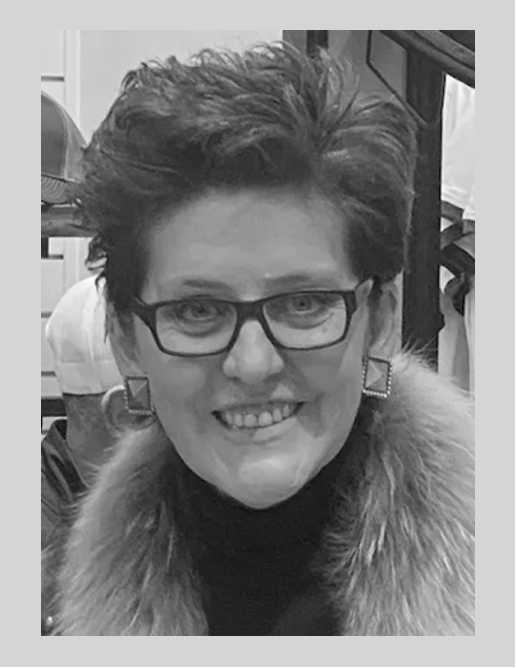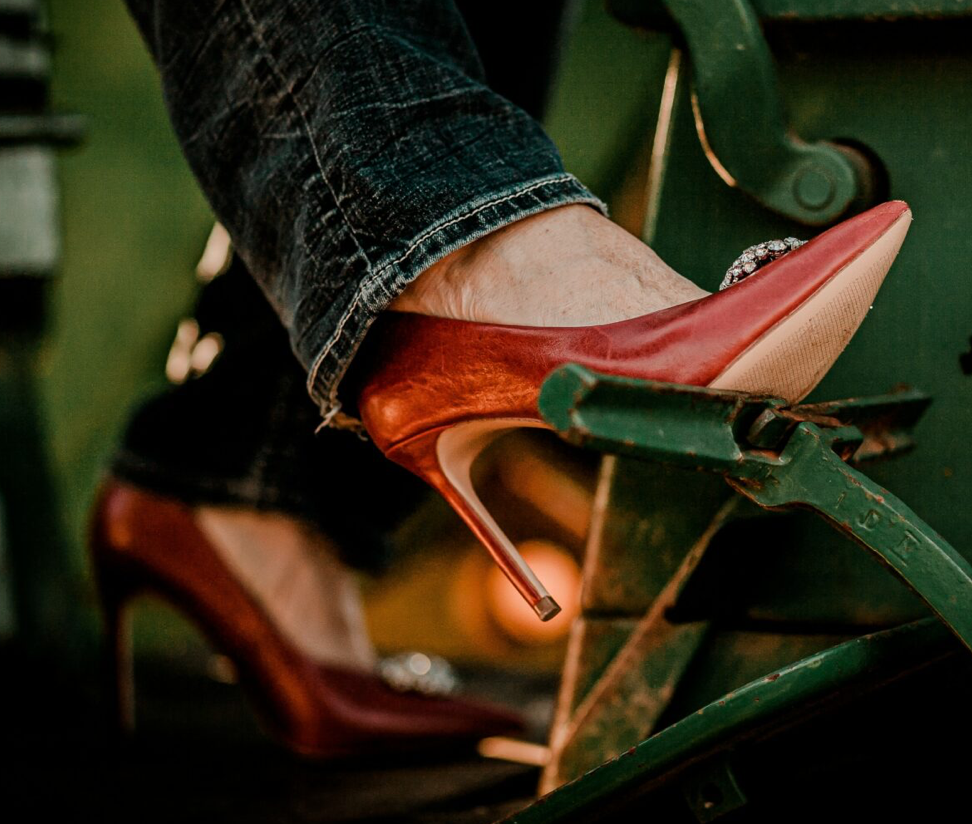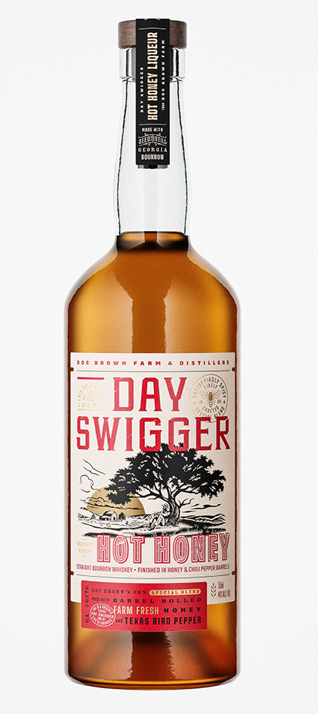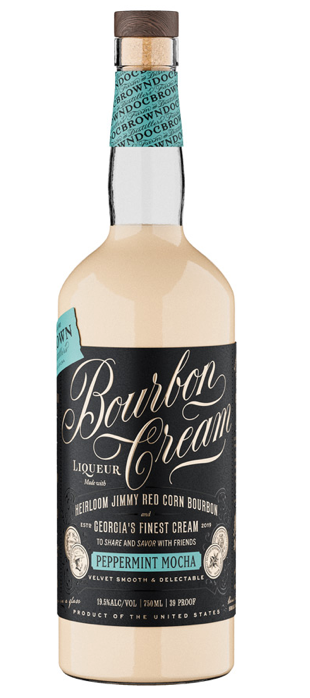Amy Brown
“Farm, Fermentation, and Family”
Doc Brown Farm & Distillers isn’t just a place where grain becomes bourbon; it’s a family story folded into 120 acres of Georgia soil, and at the center of that story is Amy Brown. A corporate warrior turned “bourbon farmer,” Amy’s path from mortgage investment banking to seed-to-glass distilling reads like a modern American reinvention: part nostalgia for the land she grew up on, part entrepreneurial courage, and wholly devoted to craftsmanship and family.
Amy grew up in unincorporated Hog Mountain, Georgia, in a family with deep ties to agriculture. In 1972, her dad, Rennis Brown, came home from his “day job” as a Maytag Man for Sears and Roebuck and informed the family that he was about to become a ‘Red Wiggler’ worm farmer. From that point onward, each day after school, Amy and her siblings had to tend to the worm beds scattered throughout the small farm. She hated it at the time. But looking into life’s rearview mirror, Amy can now see how her parents, as she earnestly proclaims, “Were, and still are in their mid-80s, the wisest people I know.” Amy often points to those roots when she describes why her current position feels appropriate, if not inevitable. After college, Brown spent over 30 years in Atlanta’s mortgage investment banking world, a long corporate career that she later had little trouble in casting aside in favor of the still-difficult but slower-paced life of running a farm and making whiskey.
That pivot became official in 2019, when Amy, her son Daniel “Dan” Williams, and her partner Paige Dockweiler (the “Doc” in Doc Brown) founded Doc Brown Farm & Distillers. The trio was inspired by a rediscovered heirloom grain nearly lost, known as Jimmy Red corn, and by the idea of marrying place, family, and old-school agricultural methods to craft distinctive bourbon. What began as a curiosity became a full-blown, woman-led, seed-to-glass operation that has won award after award, and has all three co-founders barely able to keep up with personal speaking engagements and podcasts in addition to farming and distilling.
Amy’s role in Doc Brown is both pastoral and strategic. She serves as the farm manager, the person in the trenches overseeing planting, soil management, and the revival of historic crops, while the team partners with a Master Distiller to transform those grains into whiskey. The farm plants 40–50 acres of corn and an heirloom Italian rye each year, using regenerative techniques: minimal pesticides, cover crops to rebuild soil, bat houses to reduce pests, and managed bee populations to help pollination. Those deliberate farming choices feed directly into Doc Brown’s claim to authenticity: this is bourbon tied to a specific, particular Georgia place and family.
A few details make Doc Brown and Amy’s story especially compelling. Doc Brown is one of a tiny number of female-led, grain-to-glass distilleries producing bourbon in the United States, and it has leaned into that identity, celebrating both the craft and the women behind it. One of the distillery’s signature bottlings, Effie Jewel, honors Amy’s great-aunt and signals a lineage of women in the family who have, over the years, savored and stewarded tradition. Doc Brown’s product line also includes a butter-pecan liqueur and award-winning bourbon cremes, tangible proof that proper agricultural care translates into popular, prize-winning spirits. Amy is also excited about the fact that all the components to their spirits come from the state of Georgia: gorgeous burgundy-colored Jimmy Red corn, Georgia-grown rye, Blue Ridge Mountain limestone-filtered water, and yes, even the barrels. “Our barrels are made at a place called Gainesville Cooperage, the only cooperage in the state of Georgia,” explains Brown, proudly.
At Doc Brown, Amy makes sure that family remains central. She raised two sons; Dan, a Doc Brown co-founder, is also a UPS pilot who brings hands-on energy to the enterprise. The decision to relocate to Senoia, closer to grandchildren, led to the hopes that proximity to family would lend both land and legacy to the next generation. In the end, the company’s origin story feels less like a sudden scheme and more like the logical next chapter for people who’ve spent their best years around farms and family.
As for Paige Docweiler, the other co-founder of Doc Brown, she was born and raised in the Cordele area of South Georgia in a farming family: her father managed large plantations growing soybeans, watermelons, cotton, and corn. As an adult, Paige earned a nursing degree from the University of Georgia, specializing in oncology and hematology as a registered nurse. So despite growing up around farming, like Amy, Paige didn’t immediately follow that path. Paige’s current role is part business founder, part steward of heirloom agriculture. For example, she is intricately involved in the growing of the Jimmy Red Corn, participates in hand-pollination, and is deeply invested in maintaining clean, sustainable farming processes for its grains. Taken together, the creators of Doc Brown’s story are a study in how place and profession can recombine later in life to produce something new.
Amy also contributes her great faith as a driving force in her success. “In 1816, my 4th Great Grandparents left Ireland for the ‘promised land’ called the United States of America. They came only with the clothes they could pack in their trunks and a bible. Generation after generation, our family’s faith in God has been handed down. So, on this farm, we believe that this is God’s earth and that it’s our duty to take care of it.” Her love for her Maker and her family firmly established, Amy sums up her passion for her craft, “Our farm is at the heart of everything we do, and we take great pride in growing grains that produce America’s only native spirit: Bourbon!”
From corporate finance to a farm in Senoia, Georgia, from discovering an heirloom corn to crafting whiskey that bears family names, Amy Brown’s life with Doc Brown Farm & Distillers is a deliberate reclamation of agricultural heritage. The bourbon in the bottle is only the final act; the earlier ones, soil, seed, and family, are the real yield.
Sources:
Doc Brown Farm & Disttilery/homepage, www.docbrownfarm.com
Bold Journey online magazine, “Meet Amy Brown,” boldjourney.com, February 27, 2024
VoyageATL, “Inspiring Conversations with Amy Brown,” October 10, 2024
Whiskey Ring Podcast, Episode 171, January 8, 2025
Contributed by Tracy McLemore, Fairview, Tennessee
Some photographs courtesy of boldjourney.com









